The Beauty Of Escape: An interview with Dan Mangan of Dan Mangan + Blacksmith
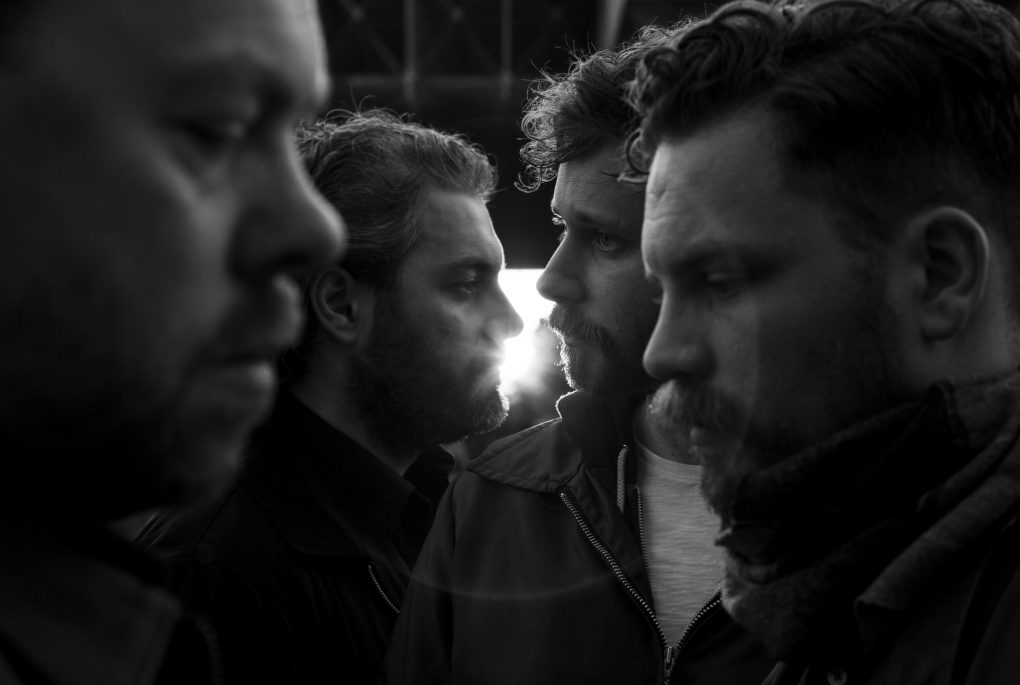
Dan Mangan + Blacksmith’s mew album, Club Meds (out 1/13, Arts & Crafts), mixes arena-rock riffs with powerful brass and haunting atmospherics. It has already been hailed as “enthralling” by SPIN and “an exciting start [from] one of Canada’s most affecting and incisive songwriters” by KEXP.
Aiming to shake people awake from a stupor, Club Meds is the most lyrically pointed and sonically experimental release from Dan Mangan, two-time JUNO winner (New Artist of the Year, Alternative Album of the Year). Along with composing the soundtrack for the 2014 Simon Pegg film ‘Hector and the Search For Happiness,’ Mangan has written for The Guardian and The Huffington Post (and became a new father!).
Ghettoblaster recently caught up with Mangan to discuss the new album, working with Colin Stewart and Dave Grohl (!!!), and becoming a new father.
When did you begin writing the material for Club Meds?
These songs began to come together, initially, during the end of touring Oh Fortune back in 2012. Some of them took forever. I think I was whittling the lyrics to “Mouthpiece” for about a year before I felt good about it.
After that record, we took a bunch of time at home and stopped touring. We’d been touring hard for a long time. We’re not that well known outside of Canada, but we’ve been afforded a really lucky go of things at home.
I started thinking about how, at the beginning, I just wanted a place at the table of music. Now that we had an audience, and a few peoples’ attention, it started to become more important to me to say something. I began to contemplate what it means to have a body of work. I want to be doing this for a long time.
I want to have all kinds of twisty detours along the way. I want to reflect on it when I’m old and feel strongly that I took risks and made music that I felt compelled to make, rather than just writing more songs because that’s what I’ve taught myself to do.
What was the most difficult song to take from the initial writing stage through recording and mixing? Why was it so troublesome?
We got into a pretty heated argument working on “Pretty Good Joke.” For a couple of hours, I was in a headspace where I was prepared to just ditch the song altogether. I had all these ideas about the song’s bones being set inside the box of a sequencer – that it would be locked on a grid. But that’s not how we’ve ever recorded. We never use click tracks, ever. We tracked and tracked for about eight hours, trying to get the vibe right doing it live off the floor.
The nature of the song is a little weird, in that it doesn’t necessarily feel like a “band” song until it really drops toward the end. So it just seemed boring without all the extra synthy noises – at first I was just down-strumming a guitar for four minutes. The vibe in the studio got more and more tense, so we left it for the night.
The next morning I made a sequenced midi track that we could play to and basically just got the boys to try a bunch of different things over top. Like Kenton playing gogo bells in 3/4, and then Kenton on kit and Gord playing that repetitive guitar riff in 3/4 for a period of bars, then dropping the 4/4 at the end of the tune. Then Johnny dropping some really laid back James Jamerson bass lines, and a million other ideas.
I’d just bark at them from the control room to do one thing for a while and then switch it up. Then we left it, and a few weeks later took all the various random parts and arranged them together. Because we had used a click in the end, we could just piece it together on the fly.
Ended up being one of my favorite songs on the record. It’s cool because it feels robotic until the band comes in, and then it feels human, and then the band kinda sinks away again and it feels robotic once more, and then when the band REALLY comes in, it’s like this huge release.
Which of the songs on the record is most different from your original concept for the song?
Again, “Pretty Good Joke.” I remember when we were nearly finished with it. I was with Colin Stewart and we were starting to mix it, and he just said, “This is the weirdest song I’ve ever worked on.” I like the juxtaposition. It’s not electro, and it’s not a live band feel. It’s this blend of all kinds of things.
Did you have any guest musicians play or sing on the record?
Ummm. Yeah. Dave Grohl sings the choruses on “Vessel.” That song was used in a film score I’d worked on, and Dave is good friends with the director. I basically was just in the right place at the right time. Dave is great. He cameos on a million things all the time, but always a bit under the radar. He likes it that way.
He tracked a million layers of guitar and we didn’t use much of it, because it took it to a much more obvious “rock” type place, which I just didn’t feel was right for the song. I felt so sheepish going back to him with a rough mix, kinda like “Hey man, you’re this really talented, friendly and magnetic super famous musician who has won a billion Grammys and spent a day recording on our song. But, umm, we’re only going to use a little bit of what you did.” But he was so cool about it. Wasn’t even phased. Just stoked for the song and happy to be involved. Which shows how healthy his ego is and how little he feels like he needs to prove.
Who produced the record? What input did that person have that changed the face of the record?
We worked with our pal Colin Stewart. He also produced Oh Fortune. We spent 10 days at a really nice studio called The Warehouse in Vancouver, where the band (Blacksmith) was really crucial to framing’/producing the songs. We really worked as a collaborative unit when it came to arranging and crafting exactly how the songs would transition and how they would feel. Then Colin and I spent weeks and weeks in my crap studio overdubbing and messing around with synths and adding layers of sounds.
Colin and I have really similar tastes and have an extremely easy working relationship. I love working with him.
Then we mixed the album at his studio on Vancouver Island (The Hive). Colin is great because he doesn’t come at things with a “super-producer” mentality. He just helps you get what you’re looking for. He has lots of ideas, but doesn’t get attached to them if they don’t work out. And he has nice gear.
Is there an overarching concept behind your new album that ties the record together?
The title and the artwork had been sitting with me for quite some time. I remember seeing a newsletter from Ben Clarkson that included the cover image, “Dream House.” It struck me so intensely. I feel like it simultaneously captures the beauty of escape as well as the melancholy of existential loneliness. I think that’s what this album is about. It’s about sedation (chemical and otherwise), but it’s also about the constructs of extremes and all the shades of grey between. The dance that we dance between harmony and dissonance, between connection and isolation, between honesty and self-delusion. We’re human and robotic at the same time, and we wander between varying states of consciousness and distraction. When I was 20, I worked at a summer camp in Massachusetts teaching sailing. Four out of the ten campers in my cabin had to go to the nurse’s office every day and take a pill. They weren’t sick. Their parents just didn’t know what to do with them.
I read that you just became a new father. Have you written anything that was inspired by your new life?
I did! When I was working on the film score (‘Hector And The Search For Happiness’), the director Peter Chelsom asked me to write a song for my kid, Jude. I’m not really a sentimental or romantic songwriter most of the time, and I’m so grateful to Peter for requesting this of me.
The song is called “Jude.” It’s about all the billions and billions of chaotic variables that ever had to happen to create this one unique little person. As for the songs on Club Meds, I feel like having a kid sharpened my pen knife. Even though having a kid makes you a bit softer and more emotional, it also raises the stakes. I feel more duty to stand for something now. I think the songs show it.
Was it challenging to balance writing Club Meds with composing the soundtrack for ‘Hector and the Search For Happiness’? How did those projects overlap?
Both projects had really long lead-ups and intense finishes. The songs for the album fluctuated from having been demo’d and arranged to being simple song ideas with some melodies that needed fleshing out.
When I was neck deep in ‘Hector,’ most of Club Meds was ready to get developed with the band. The film score was a really intense experience and it forced me to up my studio chops a bit, which really paid off when it came to the album. I’d gotten really comfortable at the helm in the studio and working in film had opened up my head to working “in the box” as they say, with midi’s and synths.
Which songs have elicited the strongest reaction from your fans?
So far, we’ve only played a small handful of songs from the album live. Right before we begin our spring tour, we’re going to rehearse for a week to actually figure out what the hell we’re going to do with these songs. That said, “Vessel” and “Mouthpiece” tend to get people pretty pumped up. I’m excited to play “Kitsch” live. That’ll be fun.
(You can watch the stunningly surreal video for “Vessel,” which NPR Music’s Bob Boilen said “stopped him cold”: http://shorefi.re/1wjMNAL.)



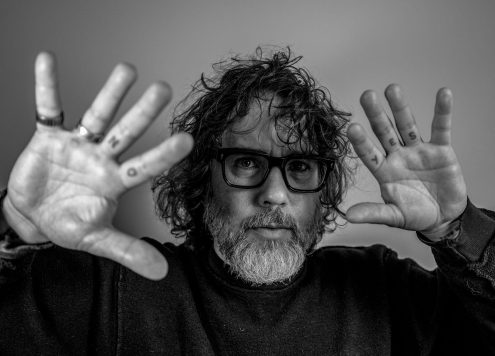
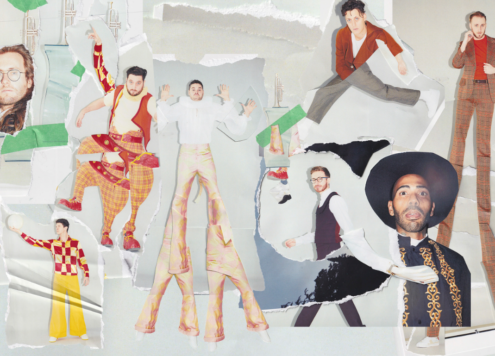
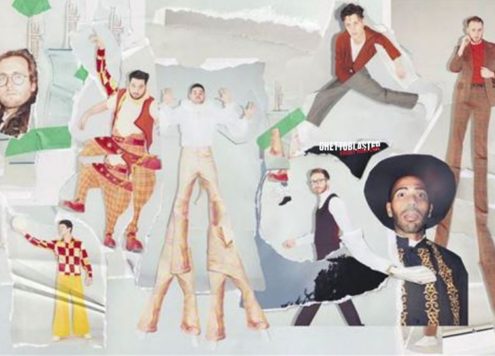

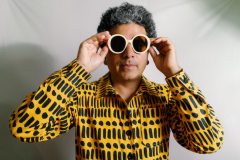
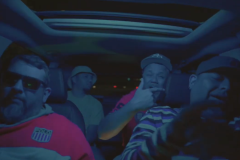
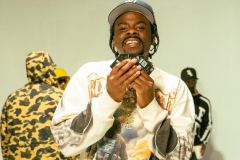
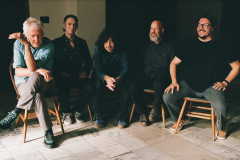

Social Media